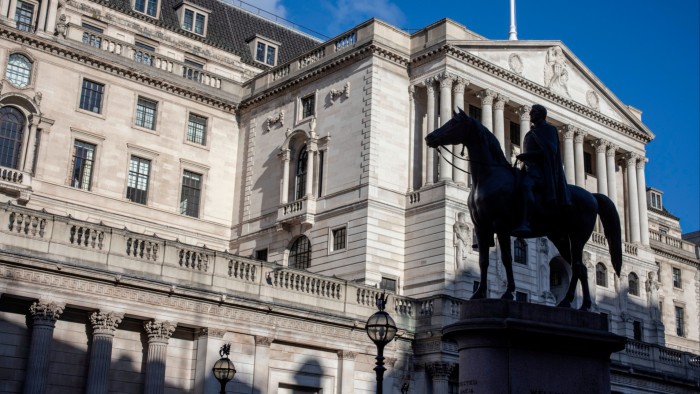Stay informed with free updates
Simply sign up to the UK interest rates myFT Digest — delivered directly to your inbox.
The Bank of England has kept interest rates on hold at 4.5 per cent, while leaving the door open to further reductions this year as it grapples with both global trade tensions and continuing price pressures in the UK.
The central bank’s Monetary Policy Committee voted eight to one to leave its benchmark rate unchanged as it reiterated plans to pursue a “gradual and careful” approach to more cuts.
Swati Dhingra, an external member of the MPC and long-standing dove, voted for a quarter-point reduction in rates.
“There’s a lot of economic uncertainty at the moment,” said Andrew Bailey, BoE governor. He added that, while the bank had held rates at 4.5 per cent, “we still think that interest rates are on a gradually declining path”.
The BoE is facing a delicate balancing act in the coming months as it gauges evidence of a flatlining economy and weakening jobs market against the prospects of a pick-up in inflation.
The minutes to this week’s meeting leave open the possibility of a rate reduction when the MPC next convenes in May, but did not give a strong signal as to the likelihood of a move.
“There was no presumption that monetary policy was on a pre-set path over the next few meetings,” the minutes said.
Thursday’s decision followed a quarter-point cut last month, when the BoE also halved its 2025 growth estimate to 0.75 per cent.
“We’ll be looking very closely at how the global and domestic economies are evolving at each of our six-weekly rate-setting meetings,” Bailey said. “Whatever happens, it’s our job to make sure that inflation stays low and stable.”
The bank thinks consumer price inflation will accelerate to 3.75 per cent later this year compared with 3 per cent in January — well above its 2 per cent target.
But a survey from the BoE’s network of agents released on Thursday showed more companies reporting they are freezing hiring, and potentially preparing to cut jobs if UK growth fails to pick up.
“The Bank of England is stuck between a rock and a hard place with inflationary pressures mounting alongside a weak growth outlook,” said Zara Nokes, global market analyst at JPMorgan Asset Management.
Compounding the uncertainties are signs of rising economic damage from US President Donald Trump’s trade war, and the prospects of next week’s Spring Statement from chancellor Rachel Reeves.
The probability of an interest rate cut in May fell slightly to just below 50 per cent, from around 60 per cent earlier in the day, according to levels implied by swaps markets. Traders continued to expect two cuts overall by the end of the year.
Rate-sensitive two-year gilt yields rose slightly to 4.18 per cent, from a low of 4.15 per cent earlier in the day.
The pound crept higher after the decision to $1.298, trimming its decline on the day to 0.2 per cent.



